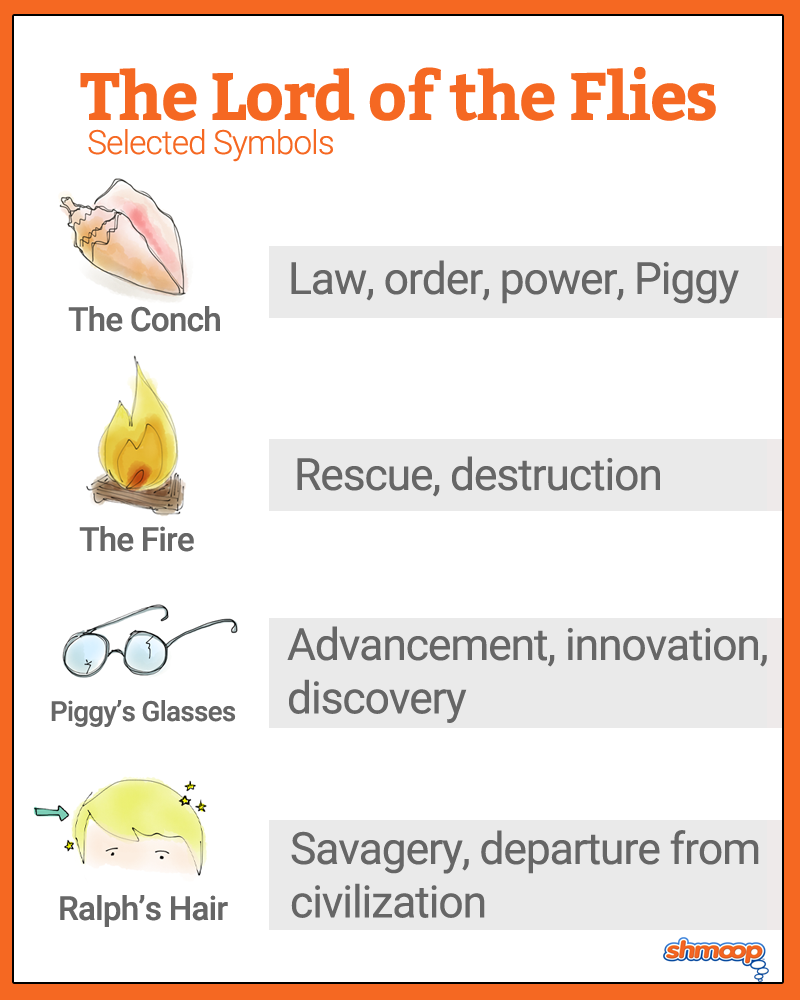Symbolism, Imagery, Allegory
Piggy and Ralph spot a conch and decide to use it to call a meeting. All right! Island society is off to a good start. The boys impose a "rule of the conch" on themselves, deciding that no one can speak unless he's holding the conch. As a representative of law and order, the conch helps Ralph get elected: "The being that had blown that, had sat waiting for them on the platform with the delicate thing balanced on his knees, was set apart" (1.240).
Even Jack respects the conch. After he fails to stage a coup, he "laid the conch with great care in the grass at his feet" (8.74). He doesn't throw it or smash it; he sets it down carefully. He may not want to play by the rules, but he still respects the rules.
At the same time, the conch reminds us that the tools of power are, well, fake. Crowns and flags are no more meaningful than this random shell that Ralph spots in the grass. It's the meaning people give them that matters. Rules are only powerful if people agree on them, and that's why Ralph refuses to blow the conch when he knows that things are starting to break down: "If I blow the conch and they don't come back; then we've had it. We shan't keep the fire going. We'll be like animals. We'll never be rescued" (5). Because he doesn't blow the conch, its power holds.
But finally, the conch is broken. Surprise, surprise: it's broken when the brutal Roger pushes a rock over a cliff. (And we mean brutal; check out his "Character Analysis.") When the conch is broken, Jack runs forward screaming that now he can be chief. With no conch, power is once again up for grabs—and Jack is feeling grabby.
One last thing: the conch is definitely associated with Ralph, but it's also associated with Piggy. Piggy's the one who recognizes it and knows how to blow it; he's the one who keeps returning to its power; and they both die at the same time. Weird, right? Any ideas?
 (Click the symbolism infographic to download.)
(Click the symbolism infographic to download.)